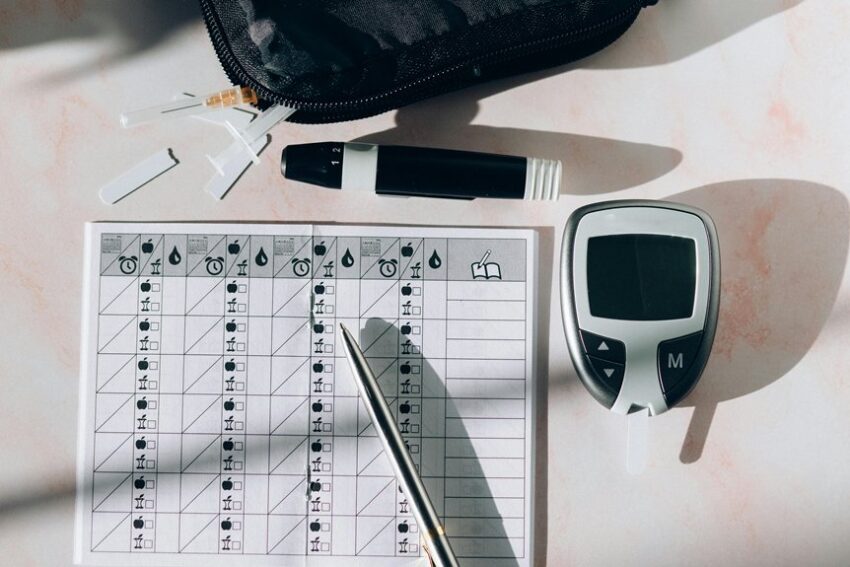Have you ever experienced sudden fatigue or dizziness, wondering what could be causing it? Low blood sugar, or hypoglycemia, can affect anyone, even those without diabetes. There are several hidden triggers that might surprise you. From skipping meals to hormonal imbalances, these factors can greatly impact your energy levels. If you think you might be experiencing low blood sugar, it’s essential to understand what’s at play. Let’s explore these triggers further.
Skipping Meals or Inadequate Nutrition
When you skip meals or don’t get enough nutrition, your blood sugar levels can drop considerably. This happens because your body relies on a steady supply of glucose for energy. Without regular meals, especially those rich in complex carbohydrates, your blood sugar can plummet, leading to symptoms like fatigue, dizziness, and irritability.
It’s important to balance your meals with proteins, healthy fats, and fiber to maintain stable blood sugar levels. Even if you’re busy, try to eat small snacks throughout the day, such as nuts or yogurt. Staying hydrated also plays a vital role, as dehydration can exacerbate low blood sugar symptoms. Additionally, maintaining healthy blood sugar levels through consistent nutrition helps you stay energized and focused, preventing those unwanted dips in energy.
Excessive Alcohol Consumption
Inadequate nutrition isn’t the only factor that can lead to low blood sugar; excessive alcohol consumption is another significant contributor. When you drink alcohol, your liver prioritizes processing it over releasing glucose into your bloodstream. This can cause your blood sugar levels to drop, especially if you haven’t eaten adequately beforehand.
Even moderate drinking can disrupt your body’s balance, particularly if you’re also engaging in physical activities. It’s essential to understand that alcohol affects everyone differently, depending on factors like your weight and metabolic rate.
To minimize the risk of low blood sugar, consider pacing your drinking and pairing alcohol with food. Staying mindful of your consumption can help you maintain stable blood sugar levels and avoid uncomfortable symptoms.
Intense Physical Activity
Engaging in intense physical activity can greatly impact your blood sugar levels. When you push your body during workouts, it uses glucose for energy, which can lead to a drop in your blood sugar.
If you don’t fuel your body properly before exercising, you might find yourself feeling dizzy, shaky, or irritable afterward. This is especially true if your activity is prolonged or highly demanding.
To prevent low blood sugar, consider eating a balanced meal or snack containing carbohydrates and protein before your workout. Staying hydrated is also essential, as dehydration can further exacerbate these symptoms.
Listen to your body, and don’t hesitate to take breaks or refuel when needed to maintain your energy and overall performance.
Hormonal Imbalances
Hormonal imbalances can substantially affect your blood sugar levels, often leading to episodes of low blood sugar that catch you off guard.
For example, fluctuations in insulin, cortisol, or adrenaline can disrupt your body’s ability to regulate glucose effectively. If your adrenal glands are overactive or underactive, you might experience erratic blood sugar levels.
Additionally, thyroid issues can play a significant role; both hypothyroidism and hyperthyroidism can lead to energy imbalances that impact your blood sugar.
Women may also experience hormonal changes during their menstrual cycle or menopause, which can contribute to these fluctuations.
Keeping an eye on your hormonal health is vital for maintaining stable blood sugar levels and overall well-being.
Certain Medications
Many medications can unexpectedly cause low blood sugar, especially if you’re managing diabetes. Some common culprits include certain antibiotics, anti-malarial drugs, and even some pain relievers.
These medications can interfere with your body’s ability to regulate glucose levels, leading to hypoglycemia.
It’s important to monitor your blood sugar closely if you’re prescribed these drugs. Always discuss potential side effects with your healthcare provider, and don’t hesitate to ask about alternatives if you’re concerned.
Be mindful of how these medications interact with your existing treatments and dietary habits. Staying informed can help you avoid sudden drops in blood sugar and guarantee your overall well-being.
Illness or Infection
Illness or infection can also lead to low blood sugar levels, especially when your body is under stress.
When you’re fighting off an illness, your body uses more energy to combat the infection, which can deplete your glucose reserves. Symptoms like fever and inflammation can further disrupt your metabolism, potentially causing your blood sugar to drop.
Additionally, if you’re not eating well due to feeling unwell, you mightn’t be replenishing your energy stores effectively. Certain infections can also interfere with hormone regulation, which plays an important role in maintaining balanced blood sugar levels.
If you notice signs of low blood sugar during an illness, it’s essential to monitor your symptoms and consult a healthcare professional for guidance.
Stress and Anxiety
When you’re under stress or feeling anxious, your body can react in ways that disrupt your blood sugar levels.
Stress triggers the release of hormones like cortisol and adrenaline, which can lead to fluctuations in glucose. Your body may prioritize immediate survival over maintaining stable blood sugar, causing it to use up glucose reserves more quickly.
If you’re not eating regularly or skipping meals due to stress, your blood sugar can drop even further. Additionally, anxiety can lead to poor food choices and overeating, which may create a cycle of instability.
Recognizing how stress impacts your blood sugar is essential. Managing stress through techniques like mindfulness, exercise, and proper nutrition can help keep your levels stable and your overall health intact.
